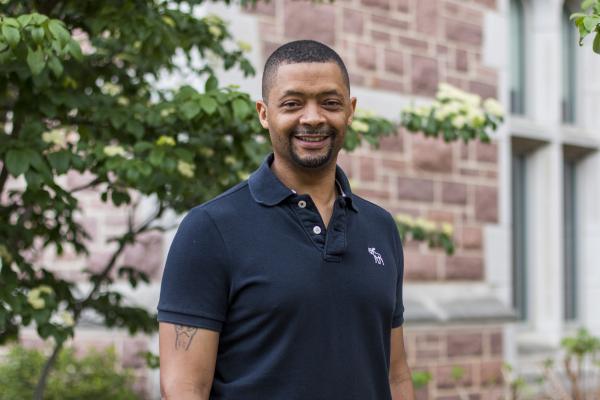Research in the COE
The College of Education has a robust, varied research agenda including grants, publications, and scholarly projects.
The COE Strategic Priority shows our commitment to Research and Scholarship. It reads, "The College of Education engages in innovative scholarly research that is published in refereed journals. This research is accomplished in a manner that engages and addresses problems of practice and the expressed needs of the public and the research community. This scholarship may be interdisciplinary and fosters collaboration with colleagues, students and external constituents. The College of Education seeks to increase opportunities for undergraduate and graduate students to collaborate with faculty in conducting and publishing research in refereed journals and presenting at major regional, national and international conferences."
COE Research Series
 The inaugural COE Research Series began in September with a visit from Dr. Odis Johnson.
The College of Education welcomed Dr. Odis Johnson Jr to speak on researching, collaboration,
and work with the NSF in a talk entitled "Broadening Participation: Research Isn't
Done In a Vacuum" on Friday September 13 in the morning. In the afternoon, he presented
a talk that focused on his own research entitled "Does filling the STEM pipeline require
draining the school to prison pipeline?" Dr. Johnson also offered consultations with
individual faculty members to strengthen their research productivity and encourage
collaboration across the college, throughout the UofM, and across disciplines and
institutions.
The inaugural COE Research Series began in September with a visit from Dr. Odis Johnson.
The College of Education welcomed Dr. Odis Johnson Jr to speak on researching, collaboration,
and work with the NSF in a talk entitled "Broadening Participation: Research Isn't
Done In a Vacuum" on Friday September 13 in the morning. In the afternoon, he presented
a talk that focused on his own research entitled "Does filling the STEM pipeline require
draining the school to prison pipeline?" Dr. Johnson also offered consultations with
individual faculty members to strengthen their research productivity and encourage
collaboration across the college, throughout the UofM, and across disciplines and
institutions.
Odis Johnson Jr., PhD, is a Professor in the Departments of Sociology and Education, Director of the NSF Institute in Critical Quantitative, Computational, and Mixed Methodologies, and Associate Director of the Center for the Study of Race, Ethnicity, and Equity at Washington University in St. Louis. He also is a Faculty Scholar at the Institute of Public Health, affiliated faculty at the Brown School of Social Work, both at Washington University. Prior to his appointments at Washington University, Dr. Johnson chaired the African American Studies Department at the University of Maryland.
Dr. Johnson's civic and intellectual engagements extend from a realization that his own childhood experiences in struggling inner-city neighborhoods and their institutions are shared by far too many people of color. The scholarship that has emerged from this awareness has featured the complicating intersections of residential stratification, the relative status of African Americans, and social policy (educational, housing, or policing policies), not only to expand knowledge, but in hopes of increasing the possibilities of evidenced-based social reform. His work on these topics has earned him a National Academies/Ford Foundation Dissertation Fellowship (the first awarded to an education scholar in the history of the interdisciplinary competition), the 2013 Outstanding Review of Research Award from the American Educational Research Association, and the 2015 Outstanding Author Contribution Award in the Emerald Literati Network Awards for Excellence. Dr. Johnson's research has appeared in highly-selective scientific journals, including the Review of Educational Research, Social Science and Medicine, and the Annals of the American Academy of Political and Social Research. Research grants from the National Science Foundation, National Institutes of Health, and the Spencer Foundation have funded much of this work, and positioned Dr. Johnson as a leader within national conversations and efforts related to the advancement of quantitative and computational science in federal research. He currently is the principal investigator of the Fatal Interactions with Police Study (FIPS) which has generated a national data file of police homicides, and three NSF-funded studies that examine how strategies to maintain law and order in neighborhoods and schools impact the representation of race-gender groups within the School-to-Prison and STEM pipelines. Dr. Johnson's work and ideas about social change have been featured in prominent media outlets, including the Oprah Magazine, Christian Science Monitor, CNN, The Washington Post, MSNBC, NPR, Teen Vogue, The Associated Press, Vox, The New Yorker, The Chicago Tribune, SiriusXM, and a variety of international and local news outlets.
